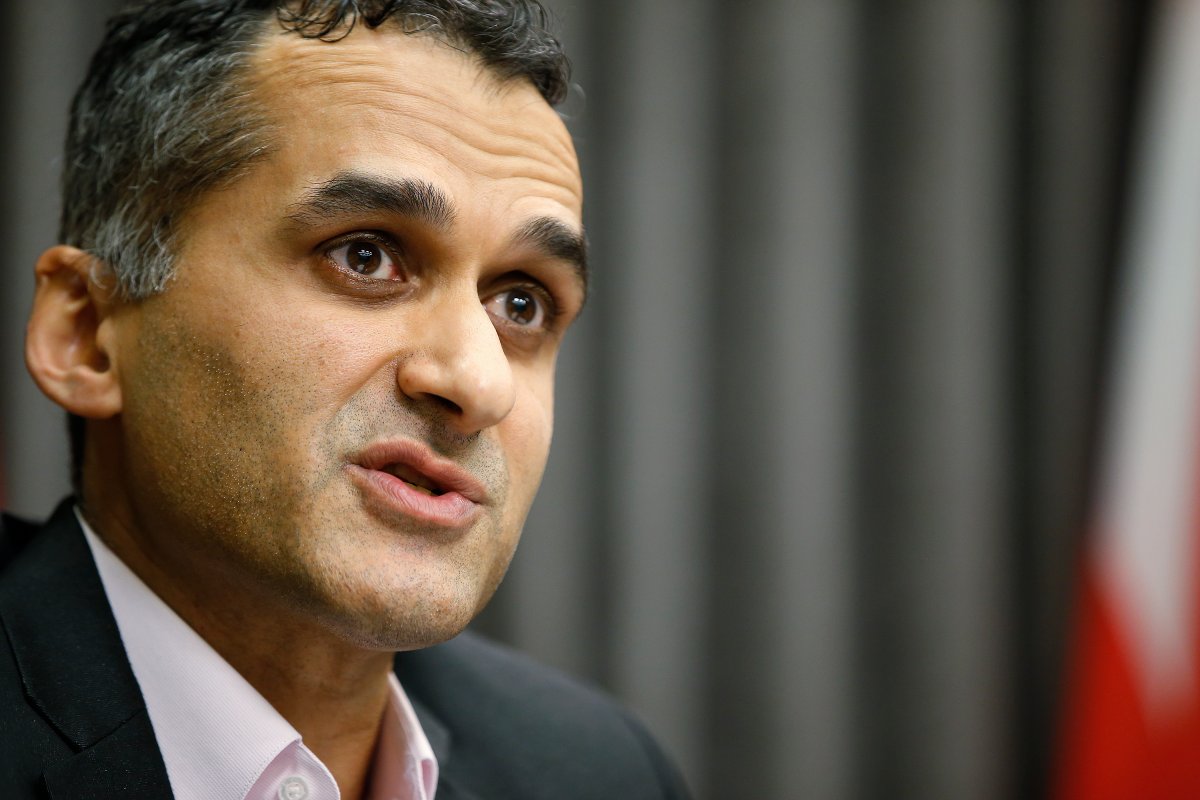The third wave of the COVID-19 pandemic is hitting Manitoba harder than predicted only a few weeks ago, and will get worse before turning a corner, a top health official said Friday.

Dr. Jazz Atwal, the deputy chief public health officer, released modelling that predicts the daily number of new cases and the demand for intensive care beds could soon exceed anything recorded to date during the pandemic.
“It is anticipated that younger COVID-19 patients will have a longer length of stay in hospital than older patients, which could increase the risk of hospital resources becoming overwhelmed,” Atwal said.
Health officials reported 491 new cases Friday and no new deaths. Manitoba has the second-highest per capita rate of new infections among provinces, behind Alberta, according to data collected by the federal government.

There were also a record 67 people in intensive care with COVID-19 on Friday. The province had a capacity of 72 ICU beds for all types of patients before the pandemic and has been scrambling to expand and keep up with rising demand.
The number of new infections is expected to climb for about another week, Atwal said, before reversing course in response to public health orders that have been tightened three times in the last month. Among the newer measures is a ban on almost all social visits in private homes and the move of schools in Winnipeg and Brandon to remote learning.
The demand for intensive care beds could increase for another three weeks or more, Atwal said. The modelling he released suggested a possible peak of 124 beds in mid-June.
Even the current numbers are above and beyond what the province considered a worst-case scenario a few weeks ago, Atwal said. He laid the blame on people who are breaking public health orders and socializing with friends.
“What’s driving this extreme scenario is people’s behaviours. It’s about those interactions. It’s about not adhering to the orders to its fullest degree,” he said.
“We have people … who are saying, ‘Yes, I went to a bonfire, yes, I went to a sleepover.'”

The province has been speeding up its vaccination plan. The government lowered the minimum age for vaccines to 12 from 18 on Friday. Health Canada previously approved the Pfizer-BioNTech vaccine for people as young as 12.
The Opposition New Democrats called on the Progressive Conservative government to release a reopening plan, similar to one in Saskatchewan, to encourage people to get vaccinated and follow public health orders.
Such a plan could show people what restrictions will be lifted if COVID-19 numbers improve, NDP Leader Wab Kinew said.
“Not to say, here’s what we’re going to do right away. But if we all band together to beat the third wave, here’s the sort of summer we can look ahead to.”
Questions about COVID-19? Here are some things you need to know:
Symptoms can include fever, cough and difficulty breathing — very similar to a cold or flu. Some people can develop a more severe illness. People most at risk of this include older adults and people with severe chronic medical conditions like heart, lung or kidney disease. If you develop symptoms, contact public health authorities.
To prevent the virus from spreading, experts recommend frequent handwashing and coughing into your sleeve. They also recommend minimizing contact with others, staying home as much as possible and maintaining a distance of two metres from other people if you go out. In situations where you can’t keep a safe distance from others, public health officials recommend the use of a non-medical face mask or covering to prevent spreading the respiratory droplets that can carry the virus. In some provinces and municipalities across the country, masks or face coverings are now mandatory in indoor public spaces.
For full COVID-19 coverage from Global News, visit our coronavirus page.
- Shoppers faces proposed class action over claims company is ‘abusive’ to pharmacists
- Most Canadian youth visit dentists, but lack of insurance a barrier
- ‘Bacterial vampirism’: Deadly pathogens attracted to human blood, study finds
- Budget 2024: Liberals look to offset drug plan cost with higher smoking, vaping taxes



Comments